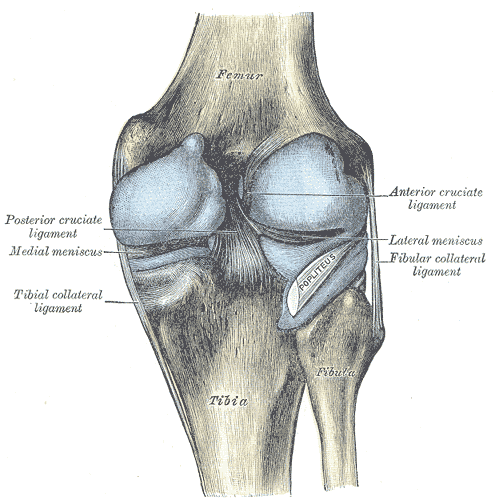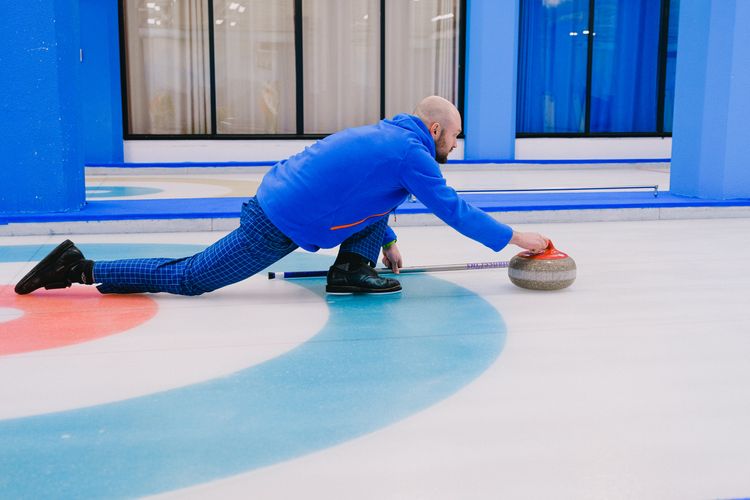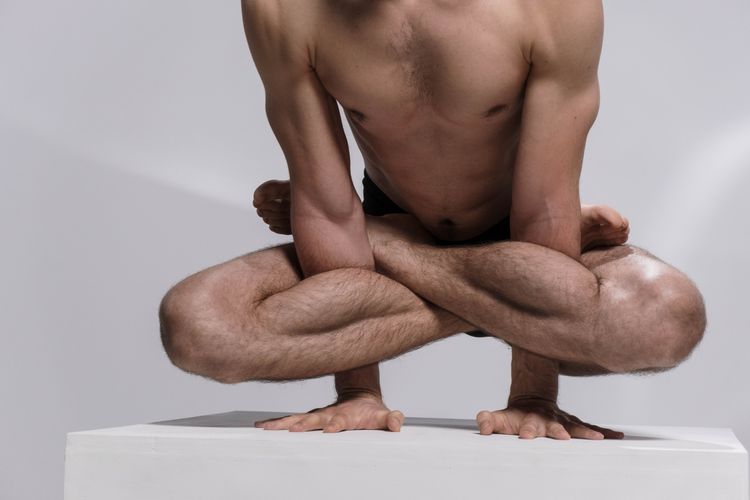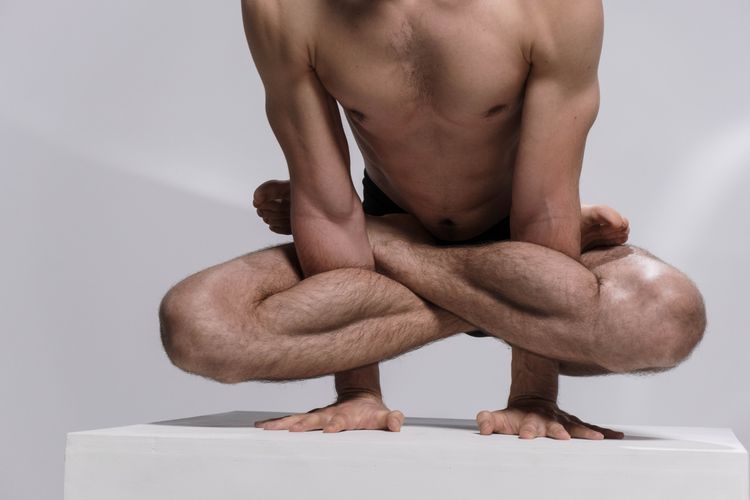Issue 10 Blue Crab Edition - Weird Tricks for Knees and Grammar's Effect on Pain

One Weird Trick to Reduce Knee Extensor Assymetry
The Gist - I know, it sounds like clickbait, but it’s really not! This article from the Journal of Strength and Conditioning Research presents a cool idea to equalize the work of each leg when reconditioning people with reconstructed ACLs. They recruited a few post-op ACL repair subjects to perform modified squats and checked their biomechanics as they did so. They ranged from 7 weeks to 6 years post repair and all had knee extensor strength asymmetry when squatting. The researchers placed their involved limb on a 5cm high platform as the men lifted 15kg from a full-depth squat and the women lifted 10. This platform caused their joint moments to be equal on the involved and non-involved sides. It balanced out the force put through each foot!
Tell Me More - This study was tiny, but promising. The best we can say at this point is that this technique may balance knee joint forces between involved and non-involved legs, we don’t know for sure. We do know that years, even lifetime, long strength asymmetry is common after ACL reconstruction, and that those with reconstructed ACLs tend to adopt movement patterns that spare the involved side, making it more challenging to fully recover from the injury. That’s what makes a trick like this so promising. Combine that with its simplicity and it’s really great news. The bad news is the sample size. 6 people. And the heterogeneity, ranging from 7 weeks post-op to 6 years.
This approach definitely needs more study (so, like, do it. It’s not hard and could be pulled off in just about any clinic), but it shows promise for now. Even if you don’t do it, be careful with the movement patterns of ACL reconstructed patients when they squat. They’re probably cheating the exercise a bit, and thus cheating their rehab. Check out this paper for more details on that.
Okay, but where’s the paper you were just talking about? It’s here, don’t worry.
You Can Reduce Pain Just By Saying The Right Thing
The Gist - Another piece of clickbait, I know, but it’s based on a real paper, promise! This narrative review from researchers in Chile and Canada describes how verbal suggestion can help manage MSK pain. It’s really cool!
They explain the neurobiology of verbal suggestion and the particulars of what therapists can say to reduce pain. We’ll focus on the latter here. The review discovered that positive verbal suggestion and high levels of empathy significantly favor the analgesic effect, while neutral communication can make it worse. The magnitude of these changes is controversial, but the effect seems to be there across the studies. Additionally, specific information about how the intervention will help the patient has been demonstrated to make a difference in how effective it is. So sell yourself people!
Tell Me More - Before you think it, this study is not saying that you should trick your patients. Rather, it points out how important word choice is in therapy and provides a huge reference list to that effect, one that I will certainly be reading. The major takeaway is the value of verbal suggestion about the potential for gain through a therapeutic method. There’s promising research that talking about interventions more positively leads to better outcomes.
There are some limitations to the research that the group was able to pull from. Some of the studies included had methodological limitations, like lack of a control group or heterogeneity of the subjects and treatments. This is an emerging field of study and it’s not quite there yet. I would recommend checking out the bibliography to find individual studies that you can use to guide your practice. Don’t be surprised if a few of those articles show up in a future Crab.
Paper? Comin’ up.






Comments
Want to leave a comment and discuss this with your fellow PTs? Join PT Crab and get summarized PT research in your inbox, every week.